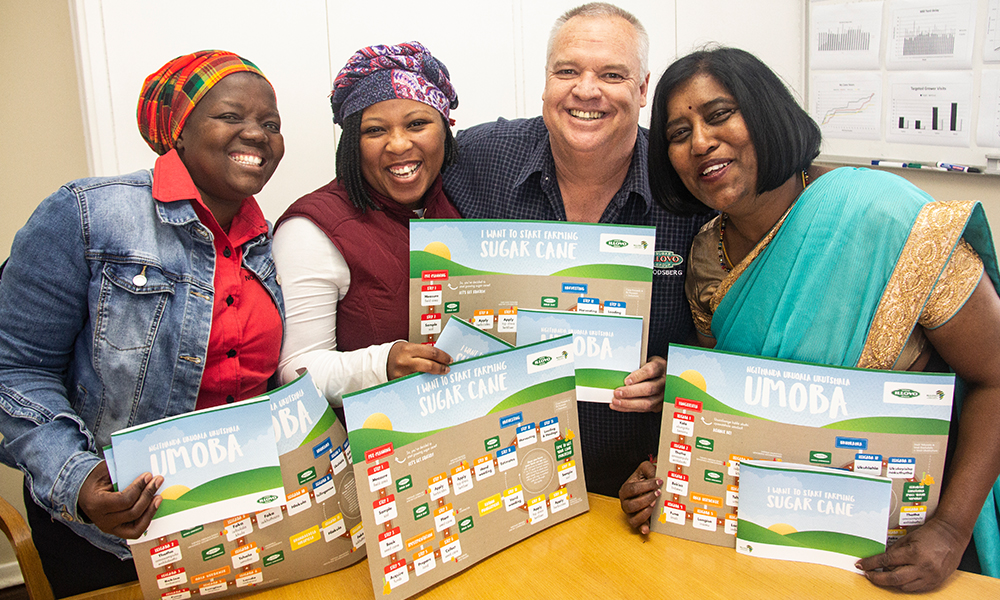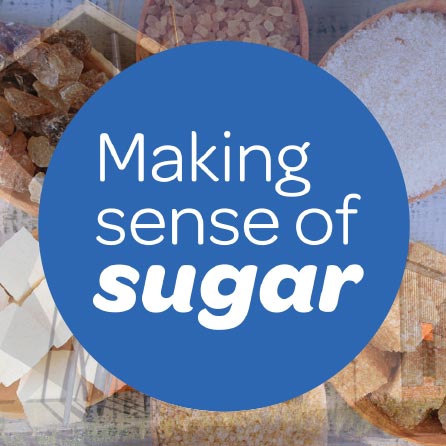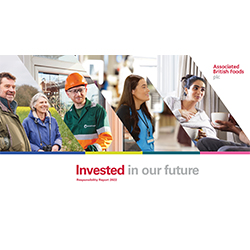19 February 2019
Support services enhanced for South Africa’s small-scale sugar cane growers
For many small-scale growers in sub-Saharan Africa growing sugar cane is an integral part of everyday life, offering many added benefits including regular employment and income for those living in rural communities.
However, it is far more than just planting seed, harvesting and transporting to the local sugar mill; and Illovo Sugar Africa’s operations in South Africa are always looking at ways to offer continuous value-added support to its small-scale growers to ensure a sustainable cane supply is realised for its factories.
In the region of KwaZulu-Natal, the team at Illovo South Africa’s (Illovo SA) Noodsberg mill have increased the amount of sugar cane delivered by small-scale growers from 15,000 tonnes in 2009 to more than 50,000 tonnes this year. Building on this success to continue increasing the efficiency and number of new small-scale growers in the local area, the mill’s development team launched a comprehensive guide on how to start growing cane from scratch as part of its efforts to offer new and diverse educational assets; enhancing its current support services.
Support services
In addition to cane development officers engaging with growers on a regular basis out in the field, the team at Noodsberg developed the informative booklet which contains a step-by-step guide on growing sugar 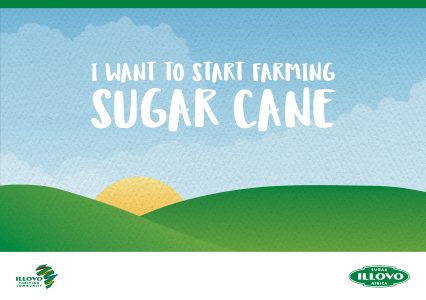 cane. It displays the contents in a user-friendly manner, using terminology that is used in the field when talking face-to-face with the growers. From deciding on the size and place of the piece of land to be planted, to analysing the soil type and choosing the best variety of cane, collecting payment for the crop, choosing the right treatment and harvesting, to organising haulage and delivery to the mill. The booklet takes the grower through each stage with visual infographics depicting the actions to take. The content differentiates itself from the more complex, high-level documentation that is available to growers from associations within South Africa. The mill’s development team describe the booklet as a “massive” step forward in plans to deliver even more comprehensive extension services to its grower base, and consider it an important asset that can be taken anywhere with the growers while they’re out in their fields.
cane. It displays the contents in a user-friendly manner, using terminology that is used in the field when talking face-to-face with the growers. From deciding on the size and place of the piece of land to be planted, to analysing the soil type and choosing the best variety of cane, collecting payment for the crop, choosing the right treatment and harvesting, to organising haulage and delivery to the mill. The booklet takes the grower through each stage with visual infographics depicting the actions to take. The content differentiates itself from the more complex, high-level documentation that is available to growers from associations within South Africa. The mill’s development team describe the booklet as a “massive” step forward in plans to deliver even more comprehensive extension services to its grower base, and consider it an important asset that can be taken anywhere with the growers while they’re out in their fields.
Fanie Horn, Cane Development Manager at Noodsberg mill, commented: “Extension services are absolutely everything when it comes to the success of what we do. Growing sugar cane is a step-by-step process and if you miss one step it affects the yields. With two development officers in the field, it’s difficult to see all of our growers on a regular basis given the size and scale of the grower areas that our mill covers. However, this booklet is another way to help us to fill this gap.”
To provide more detail, cane development officer Busi Sokhela says: “We host regular development (field) days with the growers and we just felt something was missing. A lot of people attend those events and we don’t get to spend as much time engaging with everyone as we’d like, so we asked ourselves ‘what about the people who can’t make it on that particular day?’ and this was when the idea for a booklet was first realised.”
Alongside the booklet is a roadmap which condenses the steps explained within the booklet onto one sheet, showing the journey each grower must take. 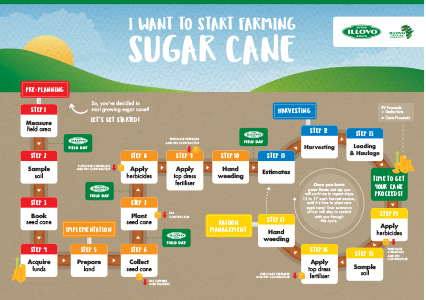 It was created with support from the learning and development team who used their experience in taking words and making them visually informative. Both assets aim to create a sense of inclusivity in the grower community, moving to break down barriers to development and economic empowerment faced by offering resources in the grower’s native language of isiZulu and in English, as well as being in a style that is suitable for all literacy levels.
It was created with support from the learning and development team who used their experience in taking words and making them visually informative. Both assets aim to create a sense of inclusivity in the grower community, moving to break down barriers to development and economic empowerment faced by offering resources in the grower’s native language of isiZulu and in English, as well as being in a style that is suitable for all literacy levels.
The assets were created with a clear set of objectives in mind:
- To empower small-scale growers to become financially responsible and economically sustainable
- To transfer and share knowledge between the 1,500 small-scale growers and Noodsberg’s cane development team
- To share knowledge in an inclusive way to access hard to reach growers
All of the steps demonstrated within the booklet are compliant with either the South African Sugarcane Research Institute (SASRI) standards or Government legislation, ensuring the growers are aware of the wider guidelines of sugar cane production.
Results
The creation of 300 trial booklets and roadmaps led to immediate success with take-up exceeding 90%. Though published at the end of 2018, there are already several notable changes within the local grower community, including:
- An approximate three-fold increase in attendance at Illovo SA’s field days
- An increase in small-scale growers providing soil samples for testing and analysis, meaning they can choose the best fertiliser option for their land and crop
- An increase in growers applying for supply agreements with Noodsberg, guaranteeing a cane supply for the future years
Small-scale growers have also shared their delight at having access to the booklet and roadmap:
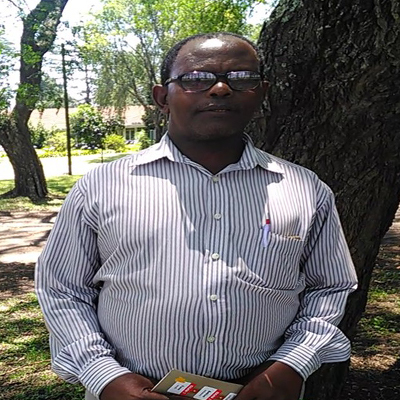 “Thank you for the booklets, they have helped a lot. It reminds us if we have forgotten what was said at the field day like how to do land preparation and how and when to take soil samples for example. They play a big role and I’d like to always have one with me“, said Dumsani Ndlovu, a grower from the Swayimani area.
“Thank you for the booklets, they have helped a lot. It reminds us if we have forgotten what was said at the field day like how to do land preparation and how and when to take soil samples for example. They play a big role and I’d like to always have one with me“, said Dumsani Ndlovu, a grower from the Swayimani area.
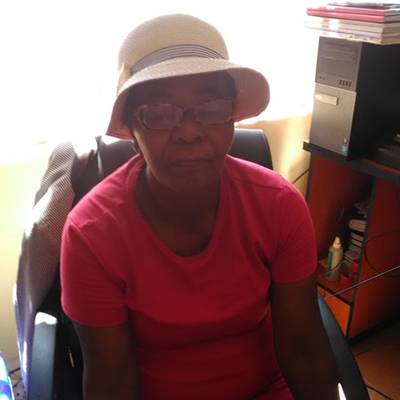 “As a first-time grower, I am excited to start planting sugar cane as I believe it will help me a lot. The booklet and roadmap has helped me to understand what needs to be done and when, particularly that when you have harvested you need to manage your field properly so as to increase yield in the next harvest”, commented Lindiwe Myeza from Etsheni
“As a first-time grower, I am excited to start planting sugar cane as I believe it will help me a lot. The booklet and roadmap has helped me to understand what needs to be done and when, particularly that when you have harvested you need to manage your field properly so as to increase yield in the next harvest”, commented Lindiwe Myeza from Etsheni
The booklets are currently being distributed amongst growers around Noodsberg’s mill; and the ambition is that it will be extended further to all of Illovo SA’s sugar mills; and into Illovo’s five other countries of operation across Southern Africa. Alongside a local partner, the team are also exploring the potential for the booklet to be transferred to an interactive version for use on mobile devices for ease of use when out in the field. They are also looking to take the booklet into local schools with agriculture departments in the foreseeable future to start educating the next generation on growing sugar cane and how to manage small-scale farms in the local area.
The team will continue to monitor feedback from its small-scale growers to see whether it has an impact on increasing yields, efficiency and productivity over the coming years.



